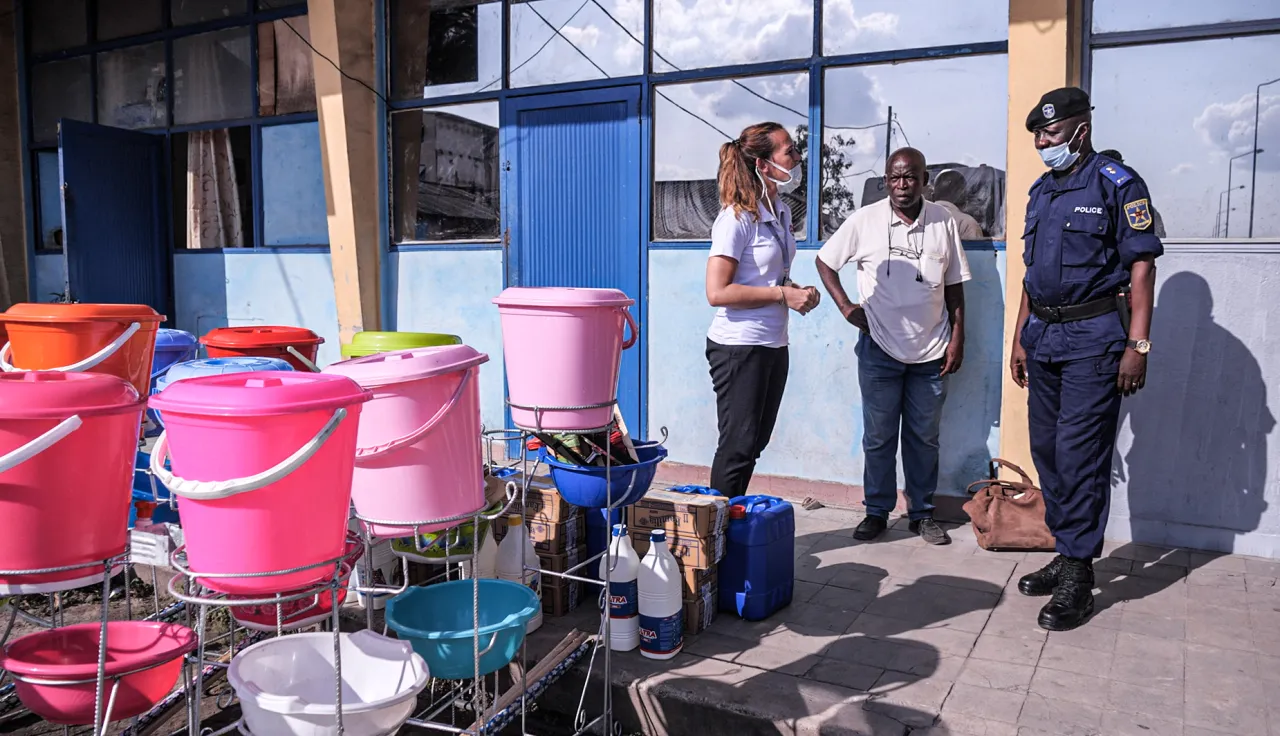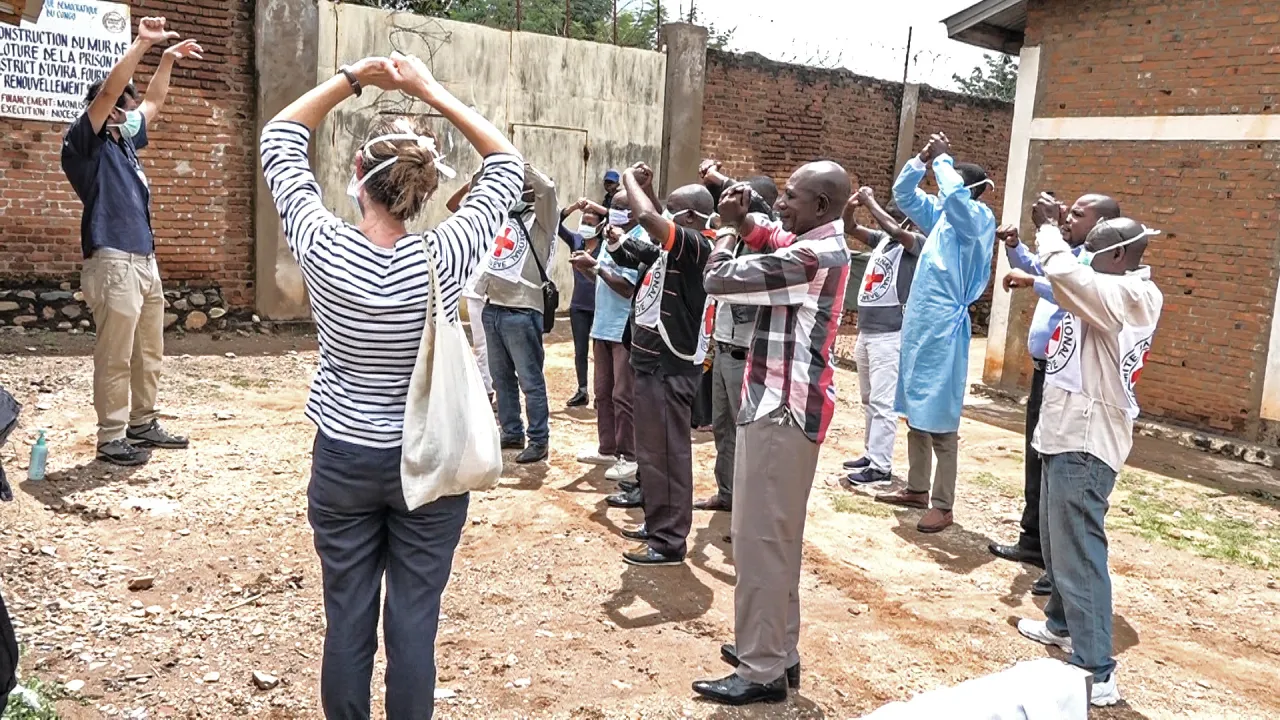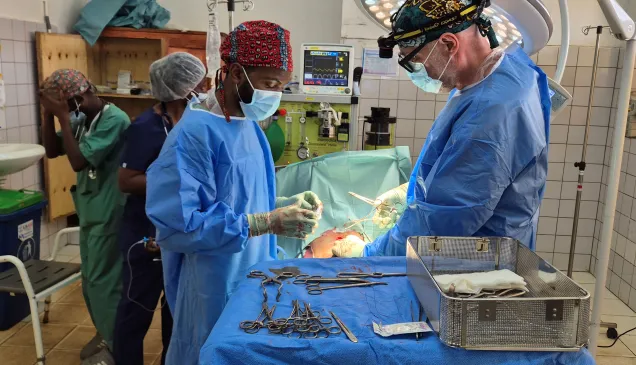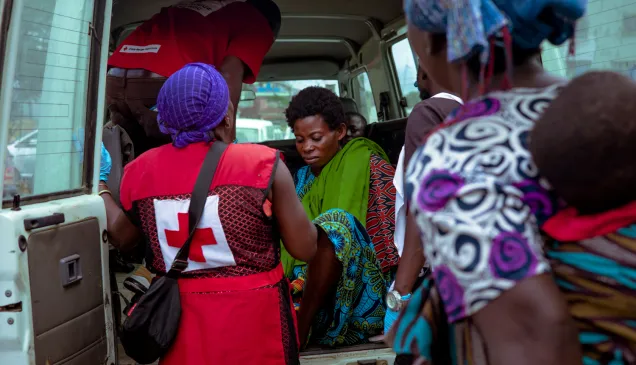Democratic Republic of the Congo: COVID-19 adds to humanitarian crisis

As cholera, measles and other chronic diseases continue to kill thousands in the Democratic Republic of the Congo (DRC), the country is also grappling with COVID-19.
The ICRC is adapting its support to a large number of health facilities, places of detention and children's centres, distributing supplies and equipment to combat the spread of coronavirus.
As soon as the pandemic started, the ICRC stepped up its existing dialogue with prison and judicial authorities on respect for detainees' rights and judicial guarantees. We are urging the authorities to release vulnerable detainees, especially those who are old or ill, who are at greater risk from COVID-19.
In the capital, Kinshasa, the ICRC has distributed 800 booklets and 40 posters to 31 police stations, explaining how to act during operations and how the police should behave towards the public under international rules.
ICRC continues humanitarian response during pandemic
"The pandemic has created new needs and intensified others. We've completely reorganized our operations in the DRC to take account of COVID-19. This has enabled us to keep working closely with the population and responding effectively in the field," explains Rachel Bernhard, the ICRC head of delegation in Kinshasa.

The ICRC delegates show prison staff in Uvira the right hygiene practices in times of COVID-19. Ferdinand MUGISHO/ICRC
COVID-19 doesn't bring an end to armed conflicts, and nor does it eliminate the huge needs that those conflicts have been causing for decades.
So far, the ICRC has provided 79 handwashing kits, plus soap and cleaning/disinfection supplies, to 12 DRC prisons, which, between them, house 23,200 inmates. Prison medical personnel have received 43,000 gloves, 2,500 surgical masks and 40 ThermoFlash thermometers, together with protective clothing to wear when treating people suspected of being infected.
The ICRC is training the personnel of eight hospitals to isolate suspect cases. These health facilities have received a total of 405 kg of chlorine, more than 900 bars of soap and 143 handwashing kits. In Bukavu Hospital, in the east of the DRC, the ICRC has boosted capacity by setting up tents in which to receive and assess suspected coronavirus cases.
Major needs remain
The lack of resources and poor security conditions everywhere in a country the size of Western Europe, plus the armed conflicts and violence in the east of the DRC (especially in the provinces of North and South Kivu, Ituri and Tanganyika) are preventing the most vulnerable members of society – both displaced persons and those who have been able to remain at home – from obtaining hospital treatment or physical rehabilitation. Needs are enormous in these regions and the situation is almost unbearable for millions of people. Their coping mechanisms are collapsing.

In certain parts of the country, people continue to flee armed violence. Didier REVOL/ICRC
The ICRC is supporting the DRC health authorities, in cooperation with the International Federation of Red Cross and Red Crescent Societies and the DRC Red Cross. Support includes running prevention campaigns, providing training for health personnel and supporting first-aiders. We have also donated handwashing kits, soap, chlorine and sprayers for 26 water-distribution points in Kinshasa.



